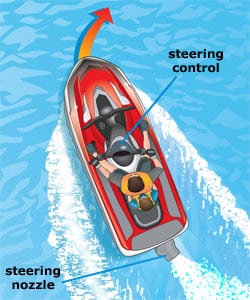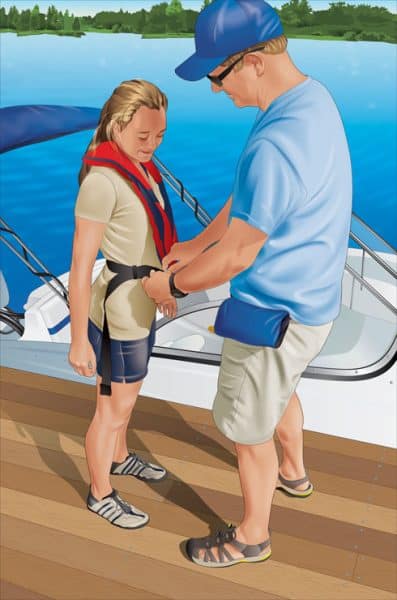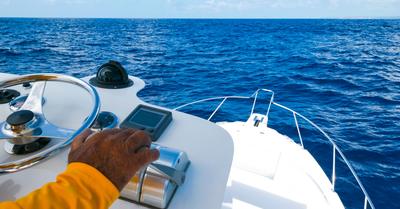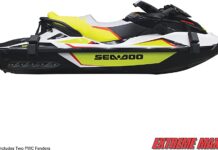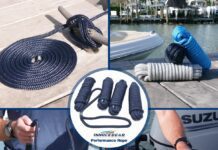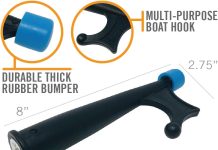When it comes to being a boat operator, there is one crucial factor that can make or break your experience out on the water. It’s not about your experience or the type of boat you have; it’s something much simpler yet incredibly vital. The single most important thing a boat operator must possess is a keen sense of responsibility. From ensuring the safety of yourself and your passengers to being mindful of your surroundings and obeying all maritime rules and regulations, responsibility is the key to a smooth and enjoyable boating experience.
1. Proper Training and Certification
1.1 Obtaining a boating license
As responsible boaters, we recognize the importance of obtaining a boating license. A boating license is not only required in many jurisdictions, but it also ensures that we possess the necessary knowledge and skills to operate a boat safely. Through the process of obtaining a boating license, we learn about various boating rules and regulations, navigation techniques, and safe boating practices. It gives us the confidence to handle our boat and navigate waterways responsibly.
1.2 Learning basic navigation skills
Mastering basic navigation skills is vital for a boat operator. We must understand how to read charts, plot courses, and interpret navigational aids. By learning the meaning of different markers and buoys, we can navigate unfamiliar waters with ease and avoid potential hazards. It is also crucial to understand how to use GPS devices and compasses to ensure we are on the right course. With proper navigation skills, we can plan our routes effectively, avoid collisions, and always reach our destination safely.
1.3 Understanding local boating regulations
Every body of water has its own set of boating regulations, and it is essential for us as responsible boat operators to be aware of them. Understanding local boating regulations ensures that we are operating within the law and promoting safe boating practices. Regulations can vary from speed limits and specific navigation requirements to designated no-wake zones and restricted areas. By familiarizing ourselves with these regulations, we can prevent accidents, protect the environment, and maintain a harmonious relationship with other boaters and authorities.
2. Knowledge of Safety Precautions
2.1 Implementing proper life jacket usage
When it comes to boating safety, one of the most crucial aspects is wearing life jackets. By implementing proper life jacket usage, we can significantly increase our chances of survival in the event of an accident or emergency. It is essential to ensure that everyone on board is wearing a properly fitting and Coast Guard-approved life jacket before setting out. We must also educate our passengers on the importance of wearing life jackets, especially children and individuals who are not strong swimmers. Life jackets save lives, and it is our responsibility as boat operators to prioritize safety above all else.
2.2 Understanding emergency procedures
No matter how well-prepared we are, emergencies can still occur on the water. Therefore, it is crucial to have a solid understanding of emergency procedures. From basic first aid knowledge to knowing how to react in situations such as flooding, fire, or a man overboard, being prepared can save lives. We should regularly review emergency procedures with our entire crew, discussing evacuation plans, communication methods, and the location and usage of safety equipment. By having a clear plan in place and staying calm under pressure, we can effectively handle emergencies and ensure the safety of everyone on board.
2.3 Recognizing weather hazards
Boating in adverse weather conditions can be extremely dangerous. It is, therefore, essential for us as boat operators to recognize weather hazards and make informed decisions regarding our boating activities. We should regularly check weather forecasts before setting out and monitor changes in weather conditions while on the water. Strong winds, thunderstorms, fog, and other weather phenomena can pose a threat to our safety. By staying informed and knowing when to seek shelter or postpone our boating plans, we can avoid potentially hazardous situations and keep ourselves and our passengers out of harm’s way.
This image is property of aceboater.com.
3. Responsible Alcohol Consumption
3.1 Knowing the legal alcohol limits
Alcohol and boating do not mix. It is crucial for us to know and abide by the legal alcohol limits set by our local boating regulations. Operating a boat while under the influence of alcohol can impair our judgment, reaction time, and coordination, increasing the risk of accidents and endangering ourselves and others on the water. By understanding the legal alcohol limits and strictly adhering to them, we can ensure our own safety and promote responsible boating practices.
3.2 Understanding the effects of alcohol on boating abilities
Understanding the effects of alcohol on our boating abilities is essential for responsible boat operators. Alcohol impairs our coordination, diminishes our ability to multitask, and reduces our alertness and concentration. These effects can make it challenging to navigate, react to potential dangers, and make sound decisions while operating a boat. By being aware of the detrimental impact alcohol has on our boating abilities, we can prioritize safety and choose not to consume alcohol while engaging in boating activities.
3.3 Encouraging a designated sober operator
To ensure the safety of everyone on board, it is crucial to encourage a designated sober operator whenever alcohol is consumed. A designated sober operator is an individual who abstains from consuming alcohol and takes responsibility for operating the boat. By designating a sober operator, we ensure that someone is fully capable of navigating the boat and making critical decisions in case of an emergency. It is our responsibility as boat operators to create a culture of responsible alcohol consumption and prioritize the safety of ourselves and our passengers.
4. Regular Equipment Maintenance
4.1 Checking and maintaining engine components
To operate our boat safely and efficiently, we must regularly check and maintain its engine components. This includes inspecting the fuel system, checking fluid levels, and ensuring the cooling system is functioning correctly. Regular engine maintenance not only reduces the risk of malfunctions while on the water but also extends the lifespan of our boat’s engine. By dedicating time to engine maintenance and addressing any issues promptly, we can avoid unexpected breakdowns and ensure a smooth and worry-free boating experience.
4.2 Inspecting safety equipment
Safety equipment is essential for protecting ourselves and our passengers in emergency situations. Regularly inspecting safety equipment, such as fire extinguishers, flares, and distress signals, ensures that they are in good working condition and readily accessible when needed. We should also check the integrity of our boat’s navigation lights, horn, and other signaling devices to ensure they are functioning properly. By maintaining and regularly inspecting our safety equipment, we can confidently face any unexpected situations that may arise while boating.
4.3 Conducting routine maintenance for electrical systems
Electrical systems play a crucial role in the proper functioning of our boat. Regularly conducting routine maintenance for electrical systems, such as batteries, wiring, and lights, helps prevent potential issues and ensures their reliability when needed. We should check the battery terminals for corrosion, test the battery’s charge, and inspect wiring for any signs of wear or damage. By taking care of our boat’s electrical systems and addressing any maintenance needs promptly, we can eliminate the risk of electrical failures while on the water.
This image is property of ke-courses-production.s3.amazonaws.com.
5. Proper Planning and Preparedness
5.1 Checking weather conditions before going out
Before embarking on any boating trip, it is essential to check the weather conditions for our planned route. Weather can change rapidly, and it is crucial to be aware of any potential storms or adverse conditions that may affect our safety. By regularly monitoring weather forecasts and staying informed of any weather advisories or warnings, we can make informed decisions about whether it is safe to proceed with our planned boating activities. Being prepared and adjusting our plans accordingly is key to avoiding unnecessary risks.
5.2 Creating a float plan
Creating a float plan is an essential aspect of responsible boating. A float plan outlines our intended route, estimated time of return, and emergency contact information. By sharing this plan with a trusted individual who is not on board, such as a friend or family member, we provide them with essential information to initiate a search and rescue operation in case we do not return as scheduled. A float plan adds an extra layer of safety and ensures that help can be summoned promptly if needed.
5.3 Carrying essential boating gear
Carrying essential boating gear is vital for being prepared for unexpected situations. This gear may include a well-stocked first aid kit, extra life jackets, emergency flares, a whistle, a waterproof flashlight, and tools for basic repairs. Additionally, we should always have a fully charged cell phone or marine radio on board to enable communication in case of emergencies. By having essential boating gear readily available, we can handle unforeseen circumstances effectively and ensure the safety of everyone on board.
6. Mastering Navigation and Maneuvering
6.1 Understanding navigational aids and charts
Mastering navigation and maneuvering is crucial for safe and confident boat operation. We should be familiar with navigational aids, such as buoys, markers, and lighthouses, and understand their meanings and significance. Knowledge of navigational charts is also essential for determining safe routes, recognizing potential hazards, and understanding water depths. By mastering navigation and being able to interpret charts and navigational aids, we can navigate unfamiliar waters with ease and ensure the safety of our vessel and those on board.
6.2 Practicing docking and anchoring techniques
Docking and anchoring are skills that every boat operator should master to ensure safe and controlled maneuvers. Practice makes perfect, and dedicating time to honing our docking and anchoring techniques can prevent damage to our boat or other vessels in marinas. Familiarizing ourselves with different docking methods, such as parallel parking or utilizing a slip, and practicing anchoring in various conditions will enhance our confidence and competence as boat operators. With these skills, we can handle docking and anchoring scenarios smoothly and safely.
6.3 Knowing how to handle different water conditions
Being able to handle different water conditions is essential for safe boating. Water conditions can vary from calm and smooth to rough and choppy, and our ability to adapt to these conditions determines our safety and the comfort of our passengers. By understanding how to adjust our speed and course while accounting for wind, waves, and currents, we can navigate through challenging conditions with ease. Mastering the techniques to handle different water conditions allows us to enjoy boating while ensuring the safety and well-being of everyone on board.
This image is property of ke-courses-production.s3.amazonaws.com.
7. Enhanced Communication Skills
7.1 Using proper radio protocols
Proper communication is crucial for safe boating and effective interaction with other boaters, marinas, and emergency services. Using proper radio protocols ensures that our messages are clear, concise, and easily understood by others on the water. We should familiarize ourselves with radio call signs, learn how to initiate and respond to radio communication, and understand channels designated for specific purposes like emergency broadcasts. By communicating effectively over the radio, we can prevent misunderstandings, coordinate maneuvers, and quickly request assistance if needed.
7.2 Knowing common boating signals
Boating signals are essential for conveying our intentions and avoiding collisions with other vessels. Knowing common boating signals, such as those for changing direction, indicating distress, or requesting assistance, allows us to communicate efficiently with other boaters on the water. We should educate ourselves and our passengers on these signals to ensure a safe boating experience. By using signals effectively, we can navigate crowded areas, avoid accidents, and maintain a respectful and harmonious relationship with other boaters.
7.3 Being able to communicate efficiently with passengers
Clear communication with our passengers plays a significant role in their safety and overall boating experience. We should be able to convey important instructions, such as how to properly wear life jackets, where designated emergency exits are located, and what to do in case of an emergency. Additionally, we should explain potential risks and safety procedures to our passengers to ensure they understand and can act accordingly. By fostering efficient communication with our passengers, we create a safe and enjoyable environment for everyone on board.
8. Awareness of Environmental Impact
8.1 Understanding how boat operations affect the environment
Being aware of how boat operations affect the environment is crucial for responsible boating. Boat emissions and improper waste disposal can have detrimental effects on water quality and marine life. We should understand the environmental impact of our boating activities and take steps to minimize our footprint. This may include using eco-friendly cleaning products, reducing engine idling time, and practicing responsible waste management. By being environmentally conscious, we can contribute to the preservation of our waterways and promote sustainable boating practices.
8.2 Avoiding sensitive areas and wildlife
Responsible boaters should avoid sensitive areas and wildlife to protect both the environment and the species that inhabit it. Some areas may be home to vulnerable ecosystems, nesting sites, or marine habitats that require our respect and preservation. By adhering to designated boating channels, observing no-wake zones, and avoiding areas with high concentrations of wildlife, we can minimize disturbances and preserve delicate ecosystems. It is our responsibility to be conscious of our impact on the environment and actively protect it for future generations.
8.3 Properly disposing of waste and garbage
Proper waste disposal is essential for maintaining the cleanliness of our waterways. We should always carry trash receptacles on board and encourage our passengers to dispose of their waste responsibly. This includes collecting and disposing of any garbage, ensuring fishing lines and plastic bags are properly stored, and refraining from throwing any debris overboard. By actively participating in waste management and adhering to responsible disposal practices, we can keep our waters clean, protect wildlife, and set a positive example for other boaters.
This image is property of www.boatingbasicsonline.com.
9. Being Mindful of Other Boaters
9.1 Practicing responsible speed and distance control
As responsible boaters, it is essential for us to practice responsible speed and distance control. Excessive speed can create hazardous conditions, reduce our ability to react to potential dangers, and disrupt other boaters. We should operate our boats at appropriate speeds, especially in congested areas or designated no-wake zones. Additionally, maintaining a safe distance from other vessels enables us to avoid collisions and respect the personal space of fellow boaters. By being mindful of our speed and maintaining a reasonable distance, we promote a safe and enjoyable boating experience for all.
9.2 Yielding to larger vessels and emergency vehicles
Yielding to larger vessels and emergency vehicles is a crucial aspect of safe boating. Larger vessels often have restricted maneuverability, and it is our responsibility to yield the right of way to them. We should be aware of their presence, monitor their movements, and adjust our course accordingly to avoid potential collisions. Similarly, emergency vehicles such as coast guard vessels and rescue boats must be given clear passage and cooperation. By yielding to larger vessels and emergency vehicles, we demonstrate responsible boating behavior and prioritize the safety of all those on the water.
9.3 Avoiding reckless behavior that may endanger others
Reckless behavior on the water endangers not only ourselves but also other boaters. It is essential for us to avoid reckless actions that may put ourselves or others at risk. This includes excessive speeding, erratic maneuvering, and engaging in dangerous activities such as wake jumping or wake surfing in crowded waters. By operating our boats in a safe and responsible manner, we ensure the well-being of everyone on the water and promote a positive boating culture.
10. Continual Education and Improvement
10.1 Staying updated on new regulations and boating practices
Boating regulations and practices may evolve over time, and it is important for us to stay updated on any changes. We should regularly review and familiarize ourselves with new regulations, ensuring that we operate our boats in compliance with the law. Additionally, staying informed about new boating practices and techniques enables us to continuously improve our skills and enhance our boating experience. By embracing a mindset of continual learning and improvement, we can be confident and responsible boat operators throughout our boating journey.
10.2 Attending boating safety courses or seminars
Attending boating safety courses or seminars is an excellent way to expand our knowledge and further develop our boating skills. These educational opportunities provide valuable insights into best practices, safety measures, and the latest advancements in boating technology. We can learn from experienced instructors, share experiences with other boaters, and gain practical knowledge that we can apply while on the water. By actively seeking out and participating in boating safety courses or seminars, we demonstrate our commitment to responsible boating and the continuous improvement of our skills.
10.3 Seeking advice from experienced boaters
Experienced boaters are a wealth of knowledge and can offer valuable advice based on their own experiences. Seeking advice from experienced boaters allows us to learn from their successes and challenges, gaining insights that can enhance our own boating practices. We can engage in conversations, join boating clubs or forums, and attend events where we can interact with seasoned boaters. By humbly seeking advice and being open to learning from others, we can further refine our skills and become even better boat operators.
In conclusion, as boat operators, there are numerous essential aspects to consider to ensure safe and responsible boating practices. From obtaining proper training and certification to mastering navigation skills and understanding safety precautions, each element plays a vital role in promoting the well-being of ourselves, our passengers, and the environment. By continually educating ourselves, embracing a mindset of improvement, and actively implementing these practices, we can become confident and responsible boat operators who enjoy the waterways while prioritizing safety and environmental stewardship.
This image is property of assets.website-files.com.

